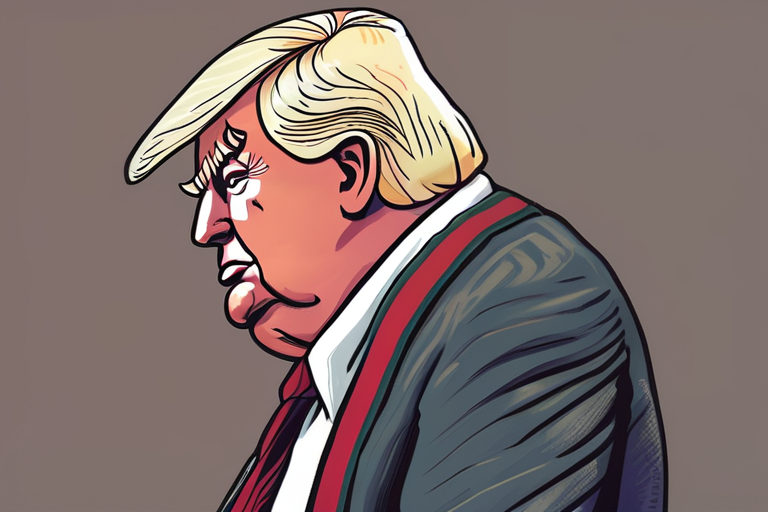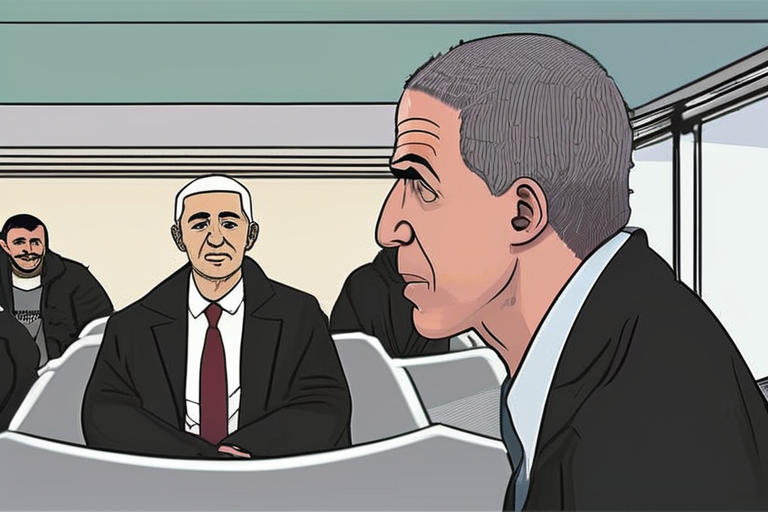US Deportation Drive Against Pro-Palestine Students Ruled Illegal by Judge
A federal judge has dealt a significant blow to the Trump administration's efforts to silence pro-Palestinian student activists, ruling that their deportation was unlawful and in violation of their right to free speech.
On Tuesday, Federal District Judge William Young, an appointee of former President Ronald Reagan, declared that Secretary of State Marco Rubio and Secretary of Homeland Security Kristi Noem misused their powers in targeting non-citizen pro-Palestinian students for deportation. The ruling states that the administration's actions were intended to "strike fear into similarly situated non-citizen pro-Palestinian individuals" and "pro-actively (and effectively) curbing lawful pro-Palestinian speech."
According to court documents, the targeted students had been involved in various protests and demonstrations criticizing Israel's policies towards Palestinians. The deportation drive was seen as an attempt by the Trump administration to suppress dissenting voices and silence criticism of its ally.
"This ruling is a major victory for free speech and a rebuke to the Trump administration's efforts to penalize non-citizens for exercising their right to protest," said Mahmoud Khalil, a Palestinian activist who participated in a "Stop Starving Gaza" march in New York last August. "We hope this decision will send a strong message that the US government cannot silence dissenting voices and that our rights as non-citizens are protected."
The ruling has significant implications for society, highlighting the tension between national security concerns and individual freedoms. The Trump administration's actions were seen as an attempt to use deportation as a tool to suppress free speech, raising questions about the limits of executive power.
"This decision is a reminder that the US government must respect the rights of non-citizens, including their right to free speech," said Ali Harb, a human rights lawyer who has been following the case. "The administration's actions were an overreach of its authority and a threat to democratic values."
The ruling represents a major setback for the Trump administration's efforts to silence pro-Palestinian voices. The decision is expected to have far-reaching implications for future deportation cases and may lead to changes in how the government approaches free speech issues.
As the case continues, advocates for human rights and free speech are hailing the ruling as a significant victory. "This decision sends a clear message that the US government cannot use deportation as a tool to silence dissenting voices," said Khalil. "We hope this will inspire more people to speak out against injustice and stand up for their rights."
Background:
The Trump administration's efforts to deport pro-Palestinian students began in 2018, with reports of targeted raids and arrests on university campuses. The move was seen as an attempt by the administration to suppress dissenting voices and silence criticism of its ally.
Additional Perspectives:
Critics of the Trump administration have long argued that its actions were motivated by a desire to silence pro-Palestinian voices and protect Israel's interests. The ruling has been hailed as a major victory for human rights advocates, who see it as a significant blow to the administration's efforts to suppress dissent.
Current Status:
The ruling is expected to have far-reaching implications for future deportation cases and may lead to changes in how the government approaches free speech issues. As the case continues, advocates for human rights and free speech are hailing the ruling as a significant victory.
Next Developments:
The Trump administration has yet to comment on the ruling, but it is expected to appeal the decision. The case will continue to be closely watched by human rights advocates and free speech activists, who see it as a major test of the limits of executive power.
*Reporting by Aljazeera.*



 Hoppi
Hoppi

 Hoppi
Hoppi

 Hoppi
Hoppi

 Hoppi
Hoppi

 Hoppi
Hoppi

 Hoppi
Hoppi











